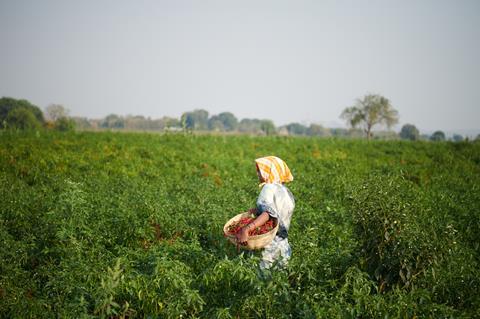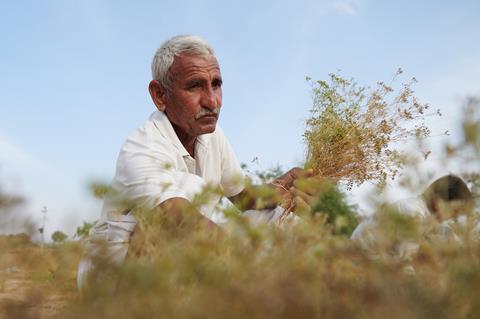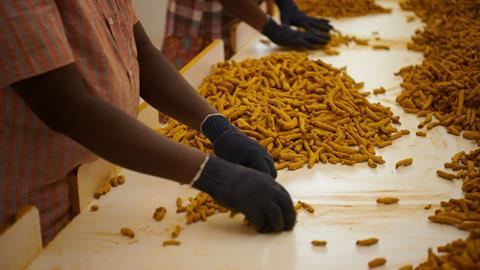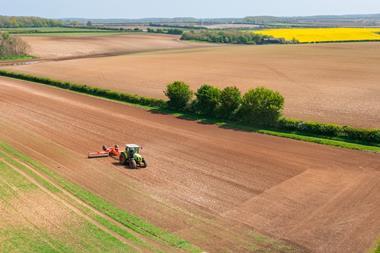As sustainability pressures mount, we explore how benchmarked sustainable sourcing programs are helping food ingredients companies boost supply chain performance
Consumers increasingly want sustainable food and beverage options, and supply must come quickly on the heels of demand.[WEF]
Ingredients companies, manufacturers and retailers need to work together to drive the sustainability change required across the supply chain if they are to meet climate action mandates and shopper demands.
So, how can assurance help global food ingredients companies to boost the compliance and sustainability performance of their supply chains?
An evolving eco-system
There’s increasing pressure across all levels of the supply chain to up the ante when it comes to improved sustainable and ethical practices.
Downstream, the demands of the end-consumer have a significant ripple effect; 78% of consumers say a ‘sustainable lifestyle’ is important to them, and shoppers are turning their words into actions. In two-thirds of categories, sales of products making ESG-related claims are growing faster than those that don’t.[McKinsey & Company]
Meanwhile, shoppers are looking to retailers for guidance and advice on sustainable living. For example, one-third of consumers (33%) are keen to hear retailers’ advice on how to shop sustainably on a budget.[The Grocer]
For retailers, an increasingly sustainable supply chain supports the business in multiple ways. While regulatory compliance helps avoid or mitigate risks, consumer pressures drive increased change, as retailers seek to enhance their image and reputation, with the end-goal of boosting revenues and doing good for the planet and people, simultaneously.
In fact, the implementation of sustainable practices has become a requirement to accessing several markets and can be responsible for approximately 20% of a business’ financial results – in a positive direction [The Grocer], making an increasingly sustainable supply chain a win-win scenario for retailers.
However, this success needs to be underpinned by the actions of the players further upstream.
Manufacturers must work collaboratively with food ingredients companies to help further accelerate the widespread adoption of sustainable agricultural, farming and manufacturing processes, to feed this growing demand for sustainable goods - by shoppers and the retailers that serve them.
Increasingly sustainable agricultural and manufacturing practices serve to bolster food and beverage supply chain resilience, helping to foster a supply chain that’s viable, and sustainable for future generations.

The importance of assurance
So, while all levels of the grocery supply chain see sustainability as imperative, how can the food and beverages industry be sure that all sectors are singing from the same hymn sheet?
For businesses adopting sustainability initiatives across the supply chain, assurance is becoming increasingly important to ensure systems are robust, credible and comparable, and to support in the sourcing of consistently sustainable goods across a company’s portfolio.
From comprehensive rules and practices through supplier selection to quality control, to assessing sustainability at farm-level, assurance programmes and platforms provide a systematic process of identifying, evaluating and mitigating sustainability risks across the end-to-end supply chain.
Internal verification, third-party assessments and independent auditing then help to validate sustainability claims, enabling manufacturers, retailers and end-consumers to identify the companies upholding rigorous sustainability standards and holding food ingredients companies accountable to sustainability impact on the ground.
“Independent verification is needed so that customers, consumers, and the entire industry can trust the information they receive about the sustainability performance of a product or supply chain,” says ofi’s AtSource sustainability manager, Katherin Ibarra.
Global food ingredients company ofi (Olam Food Ingredients) uses its proprietary sustainability management system AtSource to help monitor and optimise the sustainability performance of its supply chain, using assurance, data and insights.
“By having AtSource supply chains independently audited according to our now FSA-equivalent assurance system, the sustainability work of ofi teams on the ground can be validated, while also helping us to identify areas in which we can continuously improve,” Ibarra continues.
AtSource has been used for several years across ofi’s supply chains; an example is the company’s spices supply chain in Egypt. AtSource tools include a carbon footprint calculator which was used across ofi’s onion products, identifying areas where actions were needed to reduce the environmental footprint in its activities.
Through AtSource, the food ingredients company measured the impact of its interventions on its carbon emissions and water consumption. In collaboration with its farmer partners, it achieved around a 30% reduction in its overall carbon footprint and a 30% reduction in its overall water footprint in the 2023 crop year, compared to a 2018 baseline.

AtSource praised for its sustainability scheme and assurance system
Two tiers of ofi’s AtSource system have been recognised as equivalent schemes against the Farm Sustainability Assessment (FSA) 3.0 from the SAI platform, a widely recognised tool set for assessing, improving and validating on-farm sustainability in agricultural supply chains.
The AtSource system has achieved FSA Gold level equivalent for its AtSource+ tier, being the highest-level recognition and confirming best-in-class sustainable practices for farms in these supply chains.
The AtSourceV tier has achieved FSA Silver level equivalence, confirming farms meet a well-defined standard of responsible agricultural practices including good environmental stewardship, respect for labour rights and safe working conditions.
“AtSource is backed by 20 years of sustainability expertise provided by ofi,” says ofi’s vice president – spices EMEA Mónica Muñoz Mora.
“We are very excited about the equivalence of our AtSource sustainability management system with SAI Platform’s Farm Sustainability Assessment 3.0. This recognition attests to its rigour in assessing and addressing the sustainability challenges faced in the supply chain of our products and provides a common sustainability language to our customers,” she continues.
Developed by SAI Platform, FSA helps companies in the agricultural value chain to enable effective and efficient supply chain collaboration right down to the level of the farmer, with complementary third-party auditing.
Over 100,000 farmers in more than 30 countries around the world belong to FSA-verified farm groups, producing a variety of crops, inclduing row crops, fruits and vegetables to nuts, herbs and spices.

AtSource is a sustainability management system for sustainable products and supply chains which helps food, beverage and ingredient customers optimise the sustainability performance of their supply chains with actionable data.
AtSource works with farmer groups on the ground that implement rigorous sustainability criteria, achieving continuous improvement through targeted interventions. This process is externally verified, ensuring compliance with evolving industry standards and empowering business partners to deliver meaningful impact.
For more information on the AtSource programme, please visit the AtSource website here, or contact Katherin Ibarra, AtSource sustainability manager at ofi by emailing katherin.ibarra@ofi.com or atsource@ofi.com






















